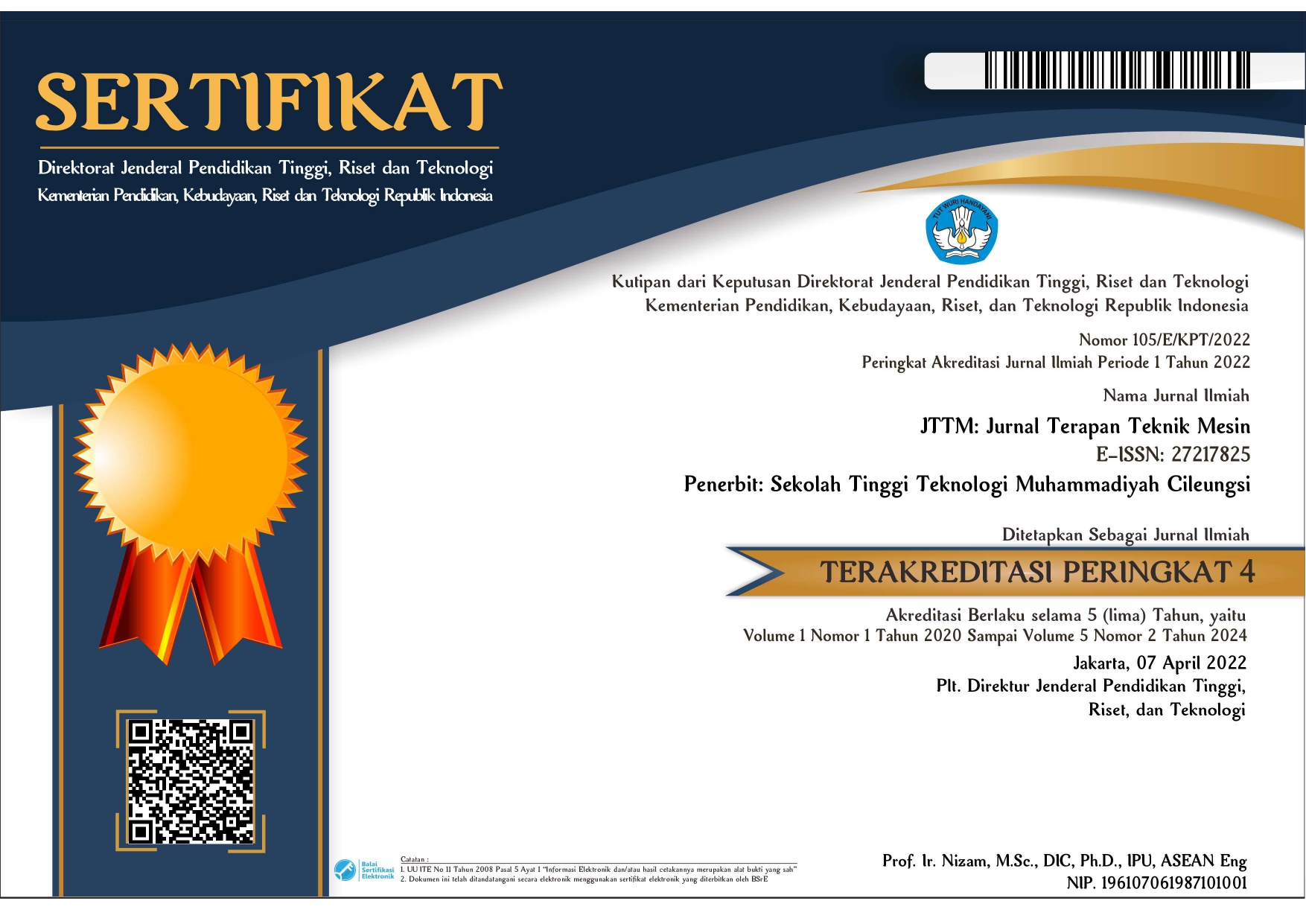Analysis of heat transfer coefficient in radiator cooling system using TiO2/CuO hybrid fluid
Abstract
The automotive industry is growing, encouraging more efficient car cooling systems, especially radiators. Innovations are constantly being made to improve the performance of radiators. Choosing the correct fluid is one of the ways to increase heat transfer. This study aimed to compare the performance of coolant OBC and TiO2/CuO hybrid fluid mixed with coolant OBC to investigate the increase in heat transfer in the car's radiator. The first step is to make TiO2/CuO hybrid fluid with a two-step method, with volume fraction variations of 1.0, 2.0, 3.0, 4.0, and 5.0%, and observe stability for 30 days. Viscosity and thermal conductivity tests are used to assess the thermophysical properties of the sample. Hybrid fluid samples of TiO2 / CuO with a volume fraction of 5.0% showed the best stability and thermal conductivity, then were added to the coolant brand OBC (1:4). The results showed an increase in heat transfer rate of 23% and a heat transfer coefficient of 20% in the TiO2/CuO hybrid fluid added to the coolant OBC
Copyright (c) 2024 Dwi Teguh Santoso, Khoirudin Khoirudin, Muhamad Taufik Ulhakim, Agus Supriyanto

This work is licensed under a Creative Commons Attribution-NonCommercial 4.0 International License.











